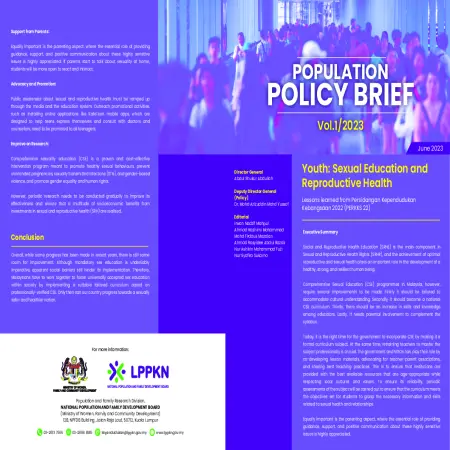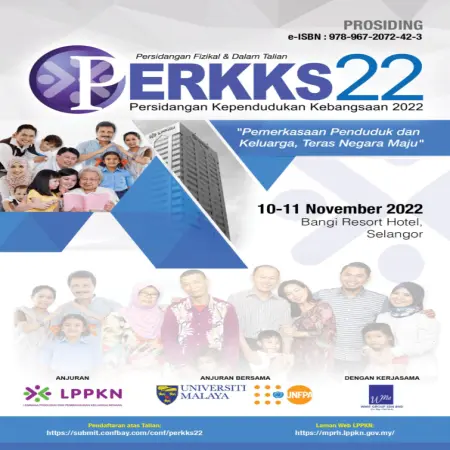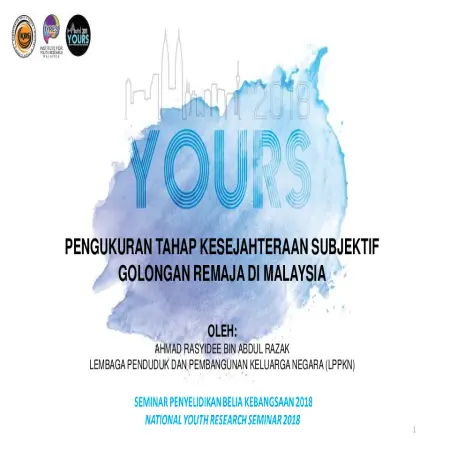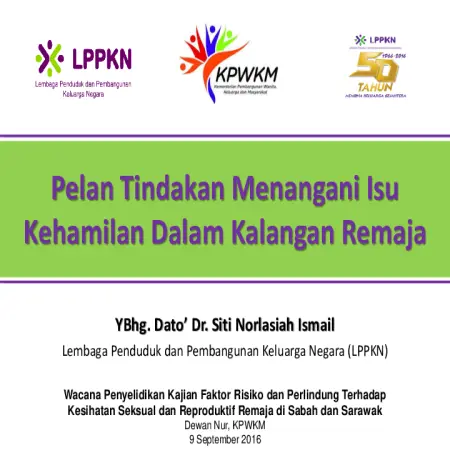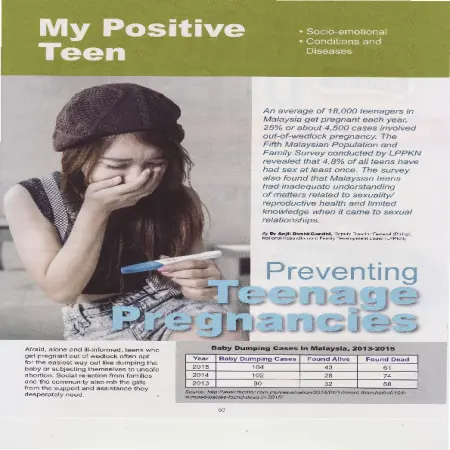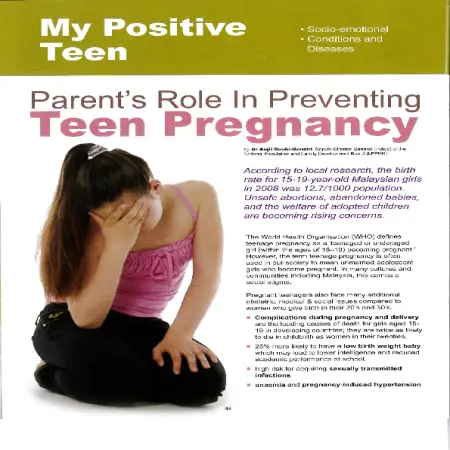TOPICS
Results for Topics : "Adolescent"
|
|
Population Policy Brief: Youth Sexual Education and Reproductive Health
Item Type: Act & Policy
Editor:
Year: 00/06/2023
Abstract: Comprehensive sexuality education (CSE) is a proven and cost-effective intervention program meant to promote healthy sexual behaviours, prevent unintended pregnancies, sexually transmitted infections (STIs), and gender-based violence, and promote gender equality and human rights. Therefore Malaysian have to work together to foster universally accepted sex education within society by implementing a suitable tailored curriculum based on professionally-verified CSE.
|
|
|
|
|
|
Prosiding Persidangan Kependudukan Kebangsaan 2022 (PERKKS 22): “Pemerkasaan Penduduk dan Keluarga, Teras Negara Maju”
Item Type: Book
Editor:
Year: 00/12/2022
Abstract: Collection of papers presented during the 2022 National Population Conference (PERKKS 22), 10-11 November 2022, Bangi Resort Hotel, Selangor.
|
|
|
|
|
|
Pengukuran tahap kesejahteraan subjektif golongan remaja di Malaysia
Item Type: Conference or Workshop Item
Editor:
Year: 00/00/2018
Abstract: This presentation aims to measure the level of subjective well-being of adolescents in the country aged between 18 and 24 years old. A total of 2,597 respondents were analyzed using data from the Fifth Malaysian Population and Family Survey (MPFS-5). The article found that the level of subjective well-being is higher in female adolescents as compared to male adolescents, the level of well-being especially their standard of living, health and safety will be reduced in tandem with an increase in age.
|
|
|
|
|
|
Parenting style and risk level of drug abuse among students in USIM
Item Type: Thesis
Editor:
Year: 00/00/2018
Abstract: Drug issue is a worldwide problem being faced by many countries and creates a complicated social problem including drug abuse among teenagers. This requires an aggressive corrective action by related agencies because it is getting rampant and has yet to be resolved. Nevertheless, society cannot always depend upon the related agencies to solve this problem. The family institution is believed to also have a role to prevent or reduce the drug abuse rate in teenagers. Looking on this aspect, the parenting style is important in shaping good character in behavior, interest, goals, and beliefs of the teenagers. A total of 121 Tamhidi students in USIM involved as respondents for the present study. Each respondent was given a questionnaire with 60 questions, represented by three sections which are - A: Demography; B: DAST-20; and C: Parenting Style. Results revealed that gender has a significant difference (p<0.05) on sociodemographic characteristic. However, no significant difference (p>0.05) were observed on the age, parent marital status, and family household. On the other part of the study, significant difference (p<0.05) was observed on the parenting style. Authoritarian style of parenting has recorded with a low-risk (46.3%) drug taking by the respondents followed by permissive parenting style (25.0%). The analysis also revealed that respondents with parent who are applying the authoritative parenting style had no-risk of possibility on taking drug (96.7%). In summary, socio-demographic attribute on gender and permissive parenting styles has been associated with high-risk drug abuse among respondents in the present study.
|
|
|
|
|
|
Preventing teenage pregnancies
Item Type: Article
Editor:
Year: 00/00/2016
Abstract: An average of 18,000 teenagers in Malaysia get pregnant each year, 25% or about 4,500 cases involved out-of-wedlock pregnancy. Th e Fifth Malaysian Population and Family Survey conducted by NPFDB revealed that 4.8% of all teens have had sex at least once. The survey also found that Malaysian teens had inadequate understanding of matters related to sexuality/ reproductive health and limited knowledge when it came to sexual relationships. Afraid, alone and ill-informed, teens who get pregnant out of wedlock often opt for the easiest way out like dumping the baby or subjecting themselves to unsafe abortion. Social rejection from families and the community also rob the girls from the support and assistance they desperately need.
|
|
|
|
|
|
Parent's role in preventing teen pregnancy
Item Type: Article
Editor:
Year: 00/00/2015
Abstract: The World Health Organisation (WHO) defines teenage pregnancy as a ‘teenaged or underaged girl (within the ages of 15–19) becoming pregnant.’ However, the term teenage pregnancy is often used in our society to mean unmarried adolescent girls who become pregnant. In many cultures and communities including Malaysia, this carries a social stigma.
Pregnant teenagers also face many additional obstetric, medical & social issues compared to women who give birth in their 20’s and 30’s.
|
|
|
|





